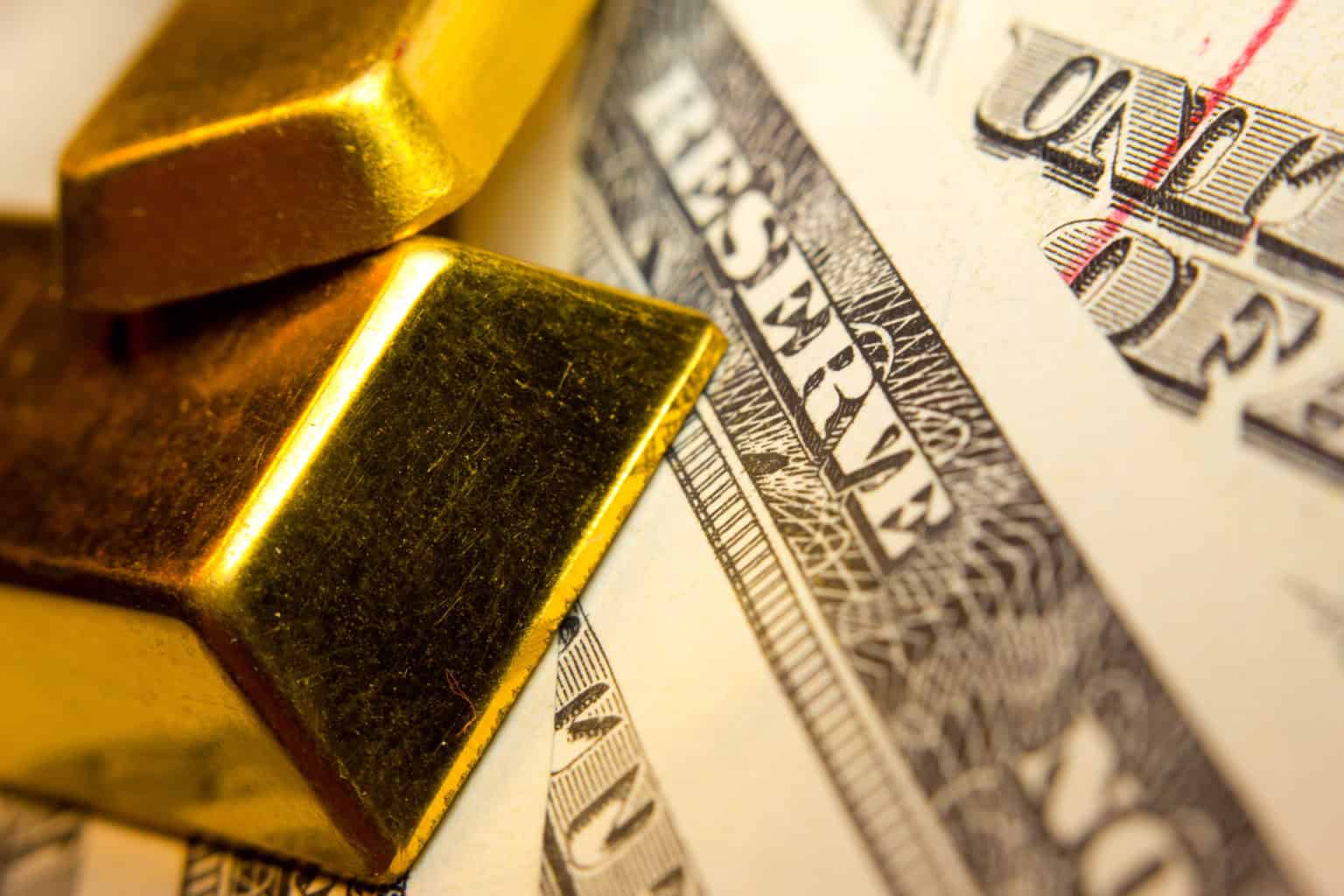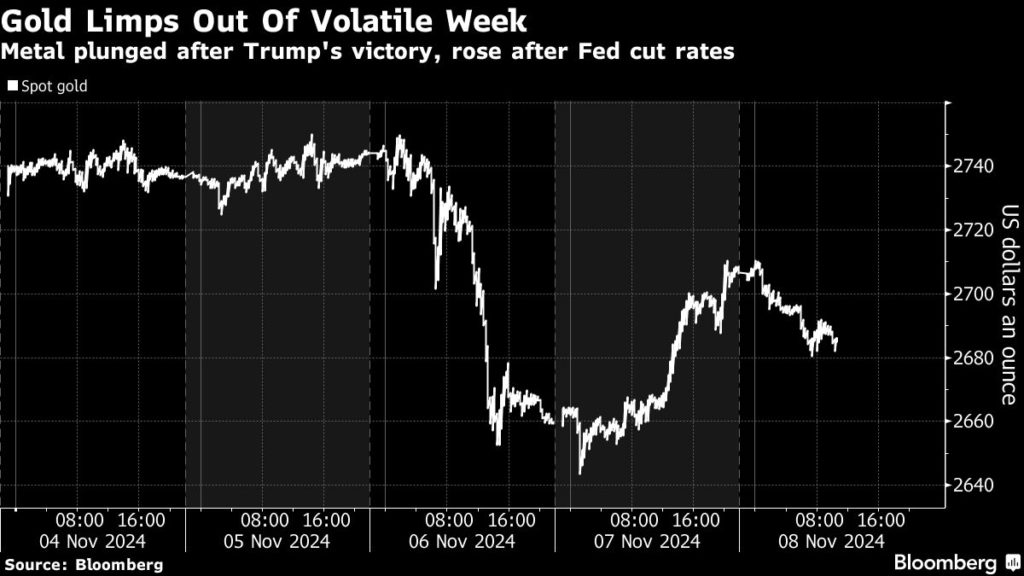
Gold fell at the end of a volatile week’s trading, as investors assessed the path ahead for US rates and the implications of Donald Trump’s election victory.
Bullion declined by as much as 1% Friday, on track for its biggest weekly fall since May. The precious metal had gained Thursday, after the Fed cut rates by a quarter point, even as Chair Jerome Powell said he didn’t rule “out or in” a further cut in December, noting recent indicators suggested the economy was still expanding solidly.

Thursday’s gain partially helped to retrace Wednesday’s 3% rout, when Trump’s win triggered a powerful rally in the dollar, reducing the appeal of commodities priced in the currency. The dollar strengthened further against the yuan on Friday, following a Chinese stimulus package which disappointed markets.
With a Republican sweep now looking likely, Wall Street economists see fewer Fed cuts than they did before the election, as the president-elect is expected to push through higher tariffs, lower taxes and looser regulation, which could fan inflation.
UBS strategists including Giovanni Staunovo say gold will likely see support as a hedge against the inflationary pressures of higher US government borrowing, arguing the price fall the day after the election was “surprising and oversized”.
Gold has surged by about a third this year to successive records, with gains powered by heightened geopolitical and economic risks, driving purchases from both central banks and investors. The rally intensified in recent months as the Fed pivoted to rate cuts and the US election loomed.
Spot gold fell 0.7% to $2,688.91 an ounce at 11:02 a.m. in London, and is down 1.8% this week. The Bloomberg Dollar Spot Index was up 0.1%. Silver dipped below $32 an ounce, on course for a second weekly drop. Platinum and palladium declined.
